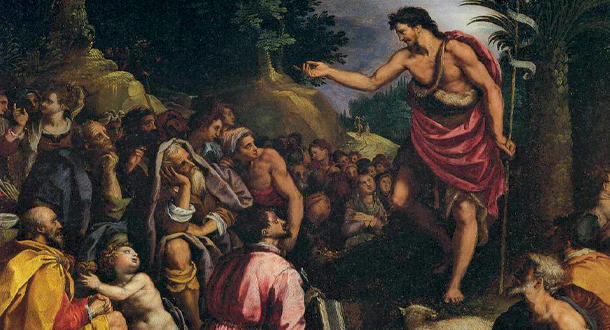 Scripture:
Scripture:
Leviticus 25:1, 8-17
Matthew 14:1-12
Reflection:
Most of us remember a few years ago how Pope Francis declared the liturgical year, “The Year of Mercy.” He heightened the importance of it by making it a Jubilee Year. Since Jubilee Years only occur once every fifty years he tagged on the term, “extraordinary”. Thus the official category for the Year of Mercy was an Extraordinary Jubilee Year. So what is a Jubilee Year? From where did it originate? These questions are answered in the first reading today.
Dating as far back as the book of Leviticus, one of the earliest books of the bible, the instruction was to joyfully celebrate the goodness and abundance of God and place your 100% dependence on the Lord. The stipulation is pretty clear. The land is to rest for a whole year. Slaves who have been acquired are to be returned. The land which has been acquired goes back to the original owner. Debts are forgiven. If this was proposed today in our country there would be absolute mayhem. For the Hebrew people, the issue is about trusting God. Do you trust God to provide for you when you are allowing the land to rest? Do you trust God when you have to release slave workers or return land which you have worked so hard to acquire? And remember, do it with joy because it is a jubilee year! This is the first reading the church gives us to reflect on today.
The Gospel is the narrative of John the Baptist’s arrest and execution by Herod Antipas, son of Herod the Great. While Matthew includes this account in his gospel, it’s challenging to see any of this as good news. Matthew says that the King was distressed by the request, yet he doesn’t challenge the woman’s request on a moral basis of being able to choose something good over something evil. Moreover, he endorses her request thus participating in the evil of the act. This entire narrative leaves me thinking about John the Baptist, Jesus, and Herod.
I ponder what that would have been like for John the Baptist. I meet numerous young men generally around collage age that have zeal and fire and are so willing to stand against the world to imprint their ideology on those who will listen to them. I can see John the Baptist as this kind of young man. Righteously, he is fearless. He probably never considered how far his prophetic utterances would travel or the repercussions of taking on the king and the king’s family in criticizing Philip’s marriage to Herodias. John the Baptist must have had an awakening while in prison as he questioned everything and realized how serious all this had now become.
Matthew intrigues our biblical imaginations as Jesus has to ponder these things. The next line after they inform Jesus is, “When Jesus heard this, and he withdrew by boat from there to a deserted place by himself.” Suddenly this isn’t just pouring water over people and baptizing them. This mission has escalated and is now life and death. How could Jesus not be asking the question, if they killed my cousin John, what will they do to me?
I’m left wondering if Herod ever had any type of conversion. He recognizes the miraculous powers at work in Jesus and associates with them. He even believes in resurrection suggesting that Jesus is the resurrected John. But does he ever notice that the powers of Jesus are used for good not evil? Does he come to an understanding that the power he has as Tetrarch can be used for good as well? I suspect not. Historically, not too many coins were made in his name or honor, which means he wasn’t well remembered.
Trusting God and learning to use our power for the good of the Kingdom of God are two themes for us to reflect on today.
Fr. David Colhour, C.P. is the pastor of St. Agnes Parish in Louisville, Kentucky.
